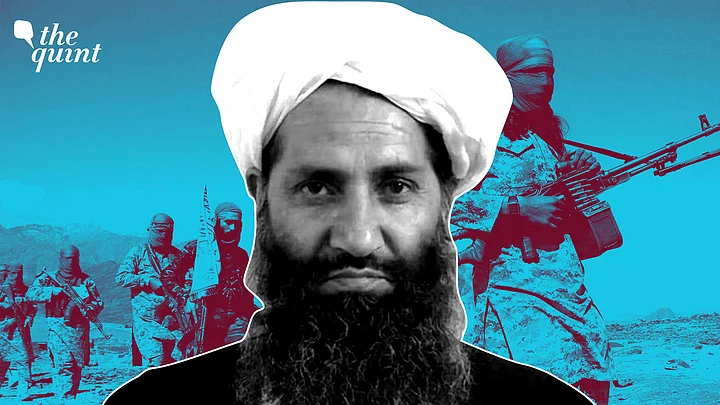Two weeks after it took control of Afghanistan, militant organisation Taliban on Wednesday, 2 September, said that it was ready to announce its new government, with the group's supreme leader Haibatullah Akhundzada at the helm.
“Consultations are almost finalized on the new government, and the necessary discussions have also been held about the cabinet... There is no doubt about the presence of the Commander of the Faithful (Akhunzada) in the government. He will be the leader of the government and there should be no question on this,” Taliban official Anamullahy Samangani was quoted as saying by TOLOnews.
'Commander of the Faithful' Haibatullah Akhundzada, the supreme leader of Taliban, is likely to take up a role akin to that of Afghanistan president, reports last month had indicated.
Here's what we know about Taliban's supreme leader Haibatullah Akhundzada, the long-time teacher of Islam who is set to take charge of Afghanistan.
Akhundzada's Beginnings in Taliban
Not much is known about the supreme leader of the Taliban, who has since long kept away from the public eye, possibly for self-protection.
Born in the Kandahar province of Afghanistan, Akhundzada is believed to be around 60 years of age, and belongs to the Noorzai tribe.
Akhundzada joined the Taliban soon after the group gained traction in the 1990s, BBC had reported. He was given the charge of fighting crime in the Farah province.
Akhundzada was later appointed to the Taliban's military court in his hometown of Kandahar, and then moved on to heading the military court in eastern Nangarhar.
When the insurgents seized power of Afghanistan in 1996, Akhundzada became the head of the organisation's military court, and deputy head of its supreme court.
However, despite his beginnings in military-associated positions, Akhundzada is essentially recognised as a religious leader.
A Religious Leader More Than a Military Commander
When the Taliban was ousted in 2001 following the US invasion of Afghanistan, Akhundzada became the chief of organisation's religious scholars, BBC reported.
For over 15 years following 2001, the Islamic cleric openly taught and preached at the Al Haaj mosque in a town called Kuchlak in Southwestern Pakistan, associates and students had told Reuters in 2016.
Several Taliban leaders have studied under Akhundzada at a madrassa located around Balochistan's Quetta, near the Afghanistan-Pakistan border.
Over the years, Akhundzada has issued several fatwas for the Taliban.
'Commander of the Faithful': Akhundzada as Taliban's Supreme Leader
Emir-al-Mumineen (Commander of the Faithful) Haibatullah Akhundzada is presently the supreme leader of the Taliban.
He was promoted to the highest rank of the Taliban – the emir – in May 2016, after a US drone killed his predecessor, Mullah Akhtar Mansour, in a strike conducted in Pakistan.
Akhundzada, upon his appointment, had secured a pledge of loyalty from terror group Al Qaeda's chief Ayman al-Zawahiri, Reuters had reported.
Akhundzada had left the religious institute in Balochistan upon his appointment, and was believed to be in hiding, Reuters had reported in 2016.
He has since evaded the public eye, fuelling speculations of his death.
As recently as February 2021, several Afghan media outlets, including Hasht-e-Subh newspaper, had reported that Akhundzada was killed in a blast in Quetta.
However, senior commander Ahmadullah Wasiq had taken to Twitter to refute the claims.
"This is false news and baseless rumours have no truth. Spreading such rumours and false news is a failed propaganda attempt by the enemy's intelligence services," he had said in the tweet.
Akhundzada is now expected to take up the role of Afghanistan's president under the Taliban regime. Taliban sources have further suggested that the supreme leader's deputy, Abdul Ghani Baradar, who heads the Taliban's political office in Doha, might take up the role of day-to-day governance, Reuters reported.
(With inputs from Reuters and BBC.)
